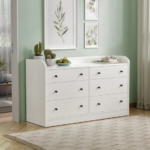Are you looking for a new boiler for your home? Choosing the right boiler is a critical decision that affects your home’s comfort, energy efficiency, and even your utility bills.
With various options available, it can be overwhelming to decide which one is best suited to your needs. Whether you’re replacing an old boiler or installing one in a new home, according to Whole Property Management company, understanding the different types available and how they match your specific requirements is essential.
This guide will walk you through the key factors to consider, helping you make an informed choice that will keep your home warm and your energy costs down.
1. Understanding the Different Types of Boilers
When it comes to choosing a boiler, understanding the types available is the first step.
Combi Boilers: A combination or “combi” boiler is the most popular type in the UK. It provides both heating and hot water directly from the mains, meaning there’s no need for a separate water tank. This makes combi boilers ideal for smaller homes or flats with limited space. They are efficient and provide hot water on demand, but might struggle if multiple outlets are used simultaneously.
System Boilers: System boilers are a great choice for larger homes with multiple bathrooms. Unlike combi boilers, they require a separate hot water cylinder, allowing them to supply hot water to several taps at once. They don’t need a cold water tank, which simplifies the installation process. System boilers are generally more efficient than conventional boilers, making them a solid option for bigger households.
Conventional Boilers: Also known as regular or heat-only boilers, these are the traditional choice for homes with an existing system of water tanks and radiators. They are ideal for properties with lower mains water pressure and can efficiently provide hot water to multiple bathrooms. However, they require more space due to the need for both a hot water cylinder and a cold water storage tank.
2. Assessing Your Home’s Needs
Selecting the right boiler isn’t just about understanding the different types; you also need to assess your home’s specific needs.
Property Size and Layout: The size of your home plays a significant role in determining the best boiler. Smaller homes or flats might benefit from a combi boiler, which saves space and provides sufficient hot water. In contrast, larger homes with multiple bathrooms might need the capacity of a system or conventional boiler.
Hot Water Demand: If your household frequently uses hot water simultaneously, such as in multiple bathrooms, a system boiler might be more suitable as it can handle higher demand without losing pressure. For smaller households with minimal simultaneous hot water use, a combi boiler might be more cost-effective and space-efficient.
Existing Heating System: If you’re replacing an old boiler, it’s often more economical to stick with the same type of system. This reduces installation complexity and costs, although there may be scenarios where upgrading to a more efficient model is worthwhile.
3. Energy Efficiency Considerations
Energy efficiency is a key factor when choosing a boiler, not only for reducing your carbon footprint but also for lowering your energy bills.
Condensing Technology: Most modern boilers are condensing, meaning they capture and reuse heat that would otherwise escape through the flue. This makes them highly efficient, with many models achieving over 90% efficiency. Choosing a condensing boiler ensures you get more heat from the same amount of fuel, translating into significant savings on your energy bills.
Environmental Impact: Opting for an energy-efficient boiler helps reduce greenhouse gas emissions. Boilers with an A-rating for efficiency are better for the environment and meet the UK’s stringent energy performance standards.
Cost vs. Long-Term Savings: “While energy-efficient boilers may have a higher upfront cost, the long-term savings in reduced energy consumption often outweigh the initial investment”, according to Plumbox. “Over time, these savings can add up, making an energy-efficient boiler a smart financial choice as well.”
4. Budgeting for Your Boiler
Budgeting is a crucial aspect of choosing a new boiler. The cost can vary widely depending on the type of boiler, its brand, and the complexity of installation. On average, the cost of a new boiler, including installation, ranges from £1,500 to £3,500.
Warranties and Guarantees: When budgeting, consider the length and coverage of the boiler’s warranty. A longer warranty can provide peace of mind and save money on potential repairs. Investing in a boiler with a comprehensive warranty is often worth the extra cost, ensuring your heating system is protected for years to come.
5. Modern Features and Technology
Modern boilers come with advanced features that enhance their efficiency and convenience.
Smart Thermostats: These devices allow you to control your heating remotely via a smartphone app, ensuring your home is warm when you need it while saving energy when you don’t. They can also learn your schedule and adjust the heating automatically.
Advanced Controls: Some boilers come with intuitive controls that make it easier to adjust settings, optimise performance, and monitor energy usage. These features not only improve user experience but also help maintain the boiler’s efficiency over time, making your home more comfortable and energy-efficient.
6. Choosing the Right Fuel Type
The type of fuel your boiler uses can have a significant impact on its efficiency and running costs.
Gas vs. Electric: Gas boilers are the most common in the UK, offering a good balance of efficiency and cost. Electric boilers, while 100% efficient, can be more expensive to run due to higher electricity costs, making them suitable for homes where gas isn’t available.
Oil and Biomass Options: In rural areas without access to the gas grid, oil boilers are a popular choice. Biomass boilers, using renewable sources like wood pellets, are an eco-friendly option, though they require more space and higher initial investment.
Choosing the right boiler for your home is a crucial decision that impacts your comfort, energy efficiency, and long-term costs. By understanding the different types of boilers, assessing your home’s needs, and considering modern features and fuel types, you can make an informed choice that keeps your home warm and your energy bills low.


